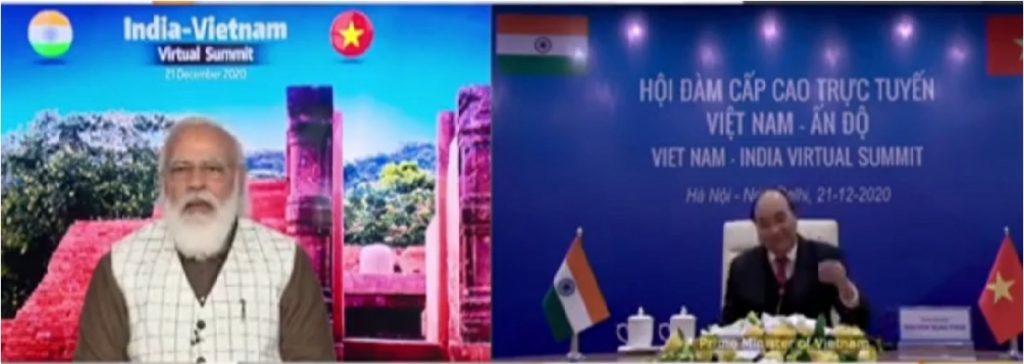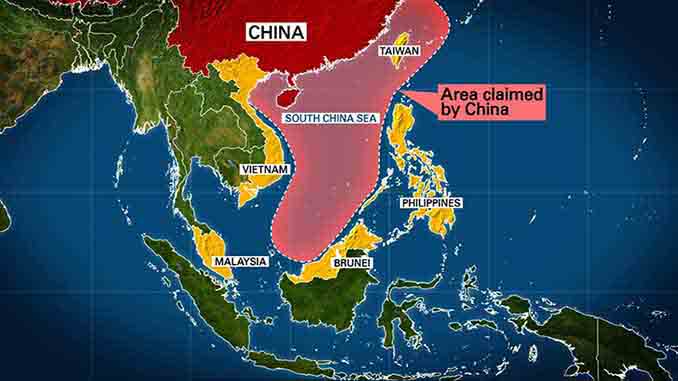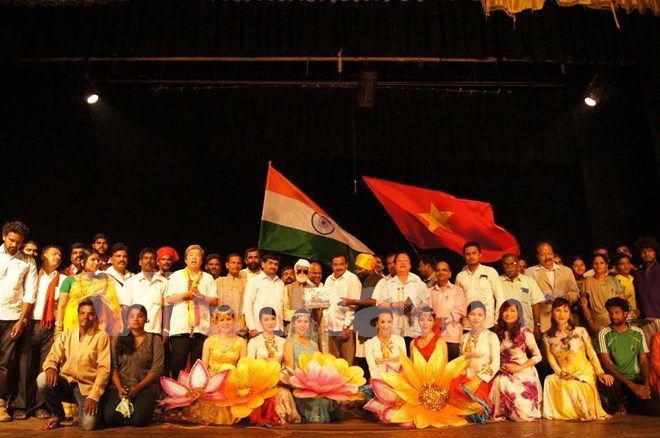
Summary: The recent virtual summit between India and Vietnam showcased the growing ties between the two countries as they set forth a Joint Vision for Peace, Prosperity and People to guide the future development of India – Vietnam Comprehensive Strategic Partnership. Furthering their Comprehensive Strategic Partnership, the two nations agreed to step up regular high-level and institutionalized exchanges in defence, security, and counter-terrorism while building upon the foundations of deep-rooted historical, cultural bonds, shared values and interests.
Mutual collaboration on trade, investment and technologies along with enhancing cultural and people-to-people exchanges have been planned in the days ahead. The two countries also signed a number of MOUs in Defence, Nuclear & Clean Energy and Health.
Indian Prime Minister Narendra Modi and Prime Minister of Vietnam Nguyen Xuan Phuc co-chaired a Virtual Summit on 21 December 2020, during which they exchanged views on wide-ranging bilateral, regional and global issues. The summit showcased the growing ties between the two countries as they set forth a Joint Vision for Peace, Prosperity and People to guide the future development of India – Vietnam Comprehensive Strategic Partnership.
Strategic Partnership for defence, security, and counter-terrorism
Reaffirming their mutual desire to further strengthen their Comprehensive Strategic Partnership, the leaders agreed to step up regular high-level and institutionalized exchanges building upon the foundations of deep-rooted historical and cultural bonds, shared values and interests, mutual strategic trust and understanding and shared commitment to international law.
Recognizing the important role of their cooperation amidst the emerging geopolitical and geoeconomic landscape in the region and beyond, the leaders agreed that enhanced defence and security partnership between India and Vietnam will be an important factor of stability in the Indo-Pacific region. To this end, the two sides will step up their military-to-military exchanges, training and capacity building programmes across the three services and coast guards and will intensify their defence industry collaboration building on India’s defence credit lines extended to Vietnam.
The two nations will further institutionalize defence exchanges through mutual logistics support, regular ship visits, joint exercises, exchanges in military Science & Technology, information sharing, and cooperation in UN peacekeeping. Both sides will engage more closely through institutionalized dialogue mechanisms in dealing with traditional and non-traditional security threats in cyber and maritime domains, terrorism, natural disasters, health security, water security, transnational crimes etc, including through enhanced legal and judicial cooperation, where required.
Underlining the link between prosperity and security, the leaders reaffirmed the importance of maintaining peace, stability, security and freedom of navigation and overflight in the South China Sea, while pursuing the peaceful resolution of disputes in accordance with international law, particularly the 1982 United Nations Convention on the Law of the Sea (UNCLOS), without resorting to threat or use of force.

Noting the importance of ASEAN-India cooperation in sustaining peace, security and prosperity in the region, the leaders welcomed the opportunities to foster practical cooperation between ASEAN and India in the key areas and in line with the objectives and principles as stated in the ASEAN Outlook on Indo-Pacific (AOIP) and India’s Indo-Pacific Oceans Initiative (IPOI) to further promote partnership in the Indo-Pacific region.
Recognizing the threat emanating from terrorism, violent extremism and radicalism to world peace and humanity, their resolve to combat terrorism in all its forms and manifestations, including cross-border terrorism, terror financing networks and safe havens, will be put into action through greater coordination in bilateral, regional and global efforts. The two sides will step up joint efforts in building a strong consensus for early adoption of the Comprehensive Convention on International Terrorism (CCIT).
Mutual collaboration on trade, investment and technologies
Acknowledging the new challenges as well as opportunities brought upon by COVID-19 pandemic, the two sides will work towards reliable, efficient and resilient supply chains, and will promote human-centric globalization. They will strive to achieve the target of US$15 billion of trade turnover at the earliest and will set higher levels of ambition for bilateral trade based on a concrete plan of action and new supply chains located in each other’s country.
Recognizing the strong complementarities between India’s large domestic market and the vision of self-reliance on the one hand and Vietnam’s growing economic vitality and capabilities on the other, both sides will constantly upgrade their bilateral economic engagement by facilitating long-term investments in each other’s economy, promoting joint ventures, engaging in new global value chains, enhancing physical and digital connectivity, encouraging e-Commerce, facilitating business travels, upgrading regional trading architecture and mutually providing greater market access.
Underlining the shared quest for progress and prosperity as two emerging economies with young population, the economic and development partnership between India and Vietnam will be increasingly driven by the promise of new technologies, innovation, and digitization to deliver good governance, people’s empowerment, and sustainable and inclusive development. To this end, both sides will harness synergies between India’s “Digital India” mission and Vietnam’s “Digital Society” vision, and deepen cooperation in peaceful uses of nuclear and space technologies, transformative technologies in Information and Communication Technology, ocean sciences, sustainable agriculture, water resource management, holistic healthcare, vaccines and pharmaceuticals, smart cities and start-ups.
Reaffirming their shared commitment to sustainable development and climate action, while addressing their energy security as developing countries, both sides will partner in new and renewable energy resources, energy conservation and other climate-resilient technologies. Vietnam’s possible future participation in International Solar Alliance would bring new opportunities for cooperation in large scale deployment of solar energy.
Enhancing Cultural and People-to-People Exchanges

Emphasizing the deep cultural and historical bonds between India and Vietnam, the two sides will commemorate and promote understanding and research of their shared cultural and civilizational heritage, including Buddhist and Cham cultures, traditions and ancient scriptures. Cooperation in conservation of shared cultural heritage will be pursued as a key pillar of their development partnership. Traditional systems of medicine are of great significance for both countries in achieving the Sustainable Development Goals.
Owing to cultural exchange between the two countries for past thousands of years, the traditional systems of medicine like Ayurveda and Vietnam-Traditional Medicine share many common threads of rich knowledge of health. Both sides will actively cooperate to publish an Encyclopaedia of India – Vietnam Cultural and Civilizational Relations to mark the 50th anniversary of India – Vietnam diplomatic relations in 2022.
Recognizing the strength and support their relationship derives from the mutually friendly sentiments of peoples of the two countries, the two sides will intensify efforts to promote closer people-to-people exchanges by increasing direct flights, providing ease of travelling through simplified visa procedures and facilitating tourism. They will further strengthen and institutionalize linkages such as Parliamentary exchanges; relations between Indian States and Vietnamese Provinces; exchanges between political parties, social organisations, friendship groups and youth organizations; collaboration between educational and academic institutions; engagement between think tanks; joint research programmes; educational scholarships; and exchanges in media, film, TV shows and sports. They will also facilitate cooperation between respective agencies on the two sides to promote contents related to India – Vietnam relations and their historical links in each other’s school textbooks.
Significant MOUs signed
The two countries also signed a number of MOUs in Defence, Nuclear & Clean Energy and Health. The MOUs/Agreements signed were:
- Implementing Arrangement on Defence Industry Cooperation.
- Agreement for US$ 5 million Indian Grant Assistance for Army Software Park at National Telecommunications University, Nha Trang.
- Implementing Arrangement between CUNPKO-VNDPKO for Cooperation in United Nation Peacekeeping.
- MOU between India’s Atomic Energy Regulatory Board and Vietnam Agency for Radiation and Nuclear Safety.
- MOU between CSIR-Indian Institute of Petroleum and Vietnam Petroleum Institute.
- MOU between National Solar Federation of India and Vietnam Clean Energy Association.
- MOU between Tata Memorial Centre and Vietnam National Cancer Hospital.
Apart from the MOUs, the two countries also announced a number of measures to monitor projects, partnerships and cultural interactions. They decide to enhance the number of Quick Impact Projects from currently 5 per year to 10 per year commencing FY 2021-2022. New Development Partnership projects in heritage conservation in Vietnam (F-block of Temple at My Son; Dong Duong Buddhist Monastery in Quang Nam and Nhan Cham Tower in Phu Yen) have also been planned.
A bilateral project for Encyclopedia on India – Vietnam Civilizational and Cultural Interactions will be launched soon.
